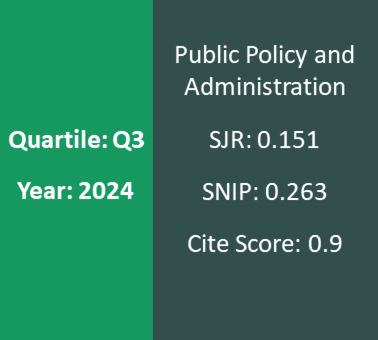Development of Administrative Reforms of Public Sector: Searching for Convergence and Divergence
Keywords:
public sector, administrative reforms, reform context, reform process, reform strategy.Abstract
The aim of this article is to review the changes in the public sector administrative reforms and to identify
its key elements by distinguishing the context, content (logic) and process of the reforms. It is shown
that public sector reform movement and reforms content is the result of conflicting and competing values
of good public management, which roots are in the perception about world’s operation and behaviour of
people. Good public management presents the quality of governance. The core values of public administration
are responsiveness to public needs and people satisfaction, integrity of government and peoples’
trust in government, reliability and confidence of public administration system. The change in values lays
in political economical, societal and institutional causes. The main reform concerns characterized by implementation
of the 3E (economy, efficiency, effectiveness) conception are changing, by varying the elements
of 3E conception into ethics, equity, equalities. Reform processes seeming to be rationalistic steps
guiding the change, at practice are on the continuum between planned changes and emerging strategy. Additionally,
the practice of reforms is usually associated with lack of results and undelivered promises.
Comparing administrative reforms we may identify the main common reforms’ factors (external pressure,
political choice, reform logic, institutional constraints and administrative traditions) influencing the reform
strategy and process, however its’ operation are different. There isn’t one universal reform model which
could solve even similar type public administration problems.





